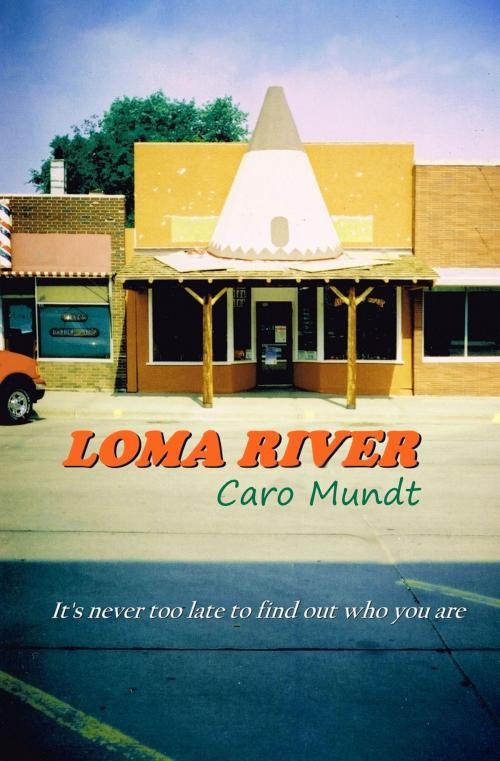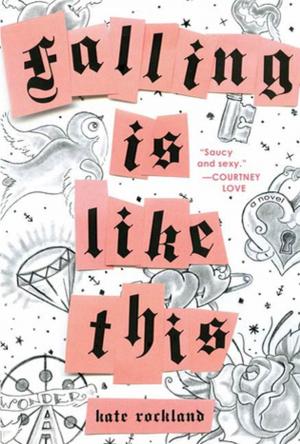| Author: | Caro Mundt | ISBN: | 9781310212529 |
| Publisher: | Caro Mundt | Publication: | February 19, 2014 |
| Imprint: | Smashwords Edition | Language: | English |
| Author: | Caro Mundt |
| ISBN: | 9781310212529 |
| Publisher: | Caro Mundt |
| Publication: | February 19, 2014 |
| Imprint: | Smashwords Edition |
| Language: | English |
Lorna La Riviere, former star of westerns and seminal Noir pictures, is long retired, living a self-absorbed existence in New Zealand with her fourth husband, Aussie, once head wrangler for MGM. Unhappy after a decade in Auckland and adept at avoiding decision-making, she is finally prompted by widowhood, quickly followed by a prognosis of terminal illness, to return to the US and deal with issues that she has steered clear of for decades. In Los Angeles she retrieves her classic 1937 Cord Beverly from storage and hits the road, intent on returning to the small northwestern town of her childhood, Loma River, to research the identity of her unnamed mother, who supposedly died when Lorna was an infant.
After several adventures on the trail, including an interlude in Las Vegas with her impoverished first husband, faux-Englishman Gerald Davenporte (60s TV favorite, "Ghost Captain"), an exhausted Lorna reaches tiny Loma River. There are no motels, and she moves into the De Luxe cabin of a struggling private campground. The campground is owned by German-born Ursula Songbird, who has married into a small band of federally unrecognized Native Americans who may be on the verge of losing their cultural distinctiveness. For the moment incognito, Lorna begins her search at the local combined school-community library, where she is befriended by shrewd, irrepressible rancher-librarian, Ivy Hapdunkel.
Meanwhile, a few miles from town, Ursula's historian daughter, Hilda, is running a 'cultural camporee' for young girls of the Band. Chief attraction is Hilda's ninety-eight year old great-aunt, Annie Frost, who was raised at the knee of Hilda's esteemed forebear, Scar. Annie helped raise Lorna, filling her head with tales of a vulnerable, talented, child-bride mother, but the pair lost contact when the movies-smitten Lorna, then known as True, ran away to Hollywood. Annie has many secrets to tell, but nobody has so far asked the right questions, and anyway, 'sometimes you keep a secret inside for so long that telling it could crack you wide open.'
As events at the camporee move towards a shocking denouement, Ivy and the local priest aid Lorna with her search by digging deep into various archives, and bemuse the somewhat emotionally-stunted former star with a series of startling--and puzzling--revelations. As well as these and her own health issues, Lorna has to deal with the sudden demise of the Cord, pushed to its limits on the road trip. The vehicle represents achievement and security to Lorna; it can be resurrected, but (she is advised), probably at the cost of authenticity--which, however, Lorna doggedly insists on. Gradually her quest for identity begins to meld with that of others in Loma River--But will Lorna be able to handle the motley shreds of resurrected memory and obscure documentation that are slowly surfacing to outline a personal scenario undreamed-of?
With a prologue set in 1859, most of the action in Loma River is spread over the summer of 2003, with an occasional segue back to Lorna's years in Hollywood. The epilogue is represented by a transcript of "Past Your Bedtime, with David Fetterman", on which Gerald Davenporte appears. Historical entries from the lost journals of a long-dead priest flesh out both Annie's and Lorna's life stories, and are important to the themes of identity and personal sacrifice which underpin Loma River. The novel contains a leavening portion of realistic humor, and ends on a note both challenging and optimistic.
Lorna La Riviere, former star of westerns and seminal Noir pictures, is long retired, living a self-absorbed existence in New Zealand with her fourth husband, Aussie, once head wrangler for MGM. Unhappy after a decade in Auckland and adept at avoiding decision-making, she is finally prompted by widowhood, quickly followed by a prognosis of terminal illness, to return to the US and deal with issues that she has steered clear of for decades. In Los Angeles she retrieves her classic 1937 Cord Beverly from storage and hits the road, intent on returning to the small northwestern town of her childhood, Loma River, to research the identity of her unnamed mother, who supposedly died when Lorna was an infant.
After several adventures on the trail, including an interlude in Las Vegas with her impoverished first husband, faux-Englishman Gerald Davenporte (60s TV favorite, "Ghost Captain"), an exhausted Lorna reaches tiny Loma River. There are no motels, and she moves into the De Luxe cabin of a struggling private campground. The campground is owned by German-born Ursula Songbird, who has married into a small band of federally unrecognized Native Americans who may be on the verge of losing their cultural distinctiveness. For the moment incognito, Lorna begins her search at the local combined school-community library, where she is befriended by shrewd, irrepressible rancher-librarian, Ivy Hapdunkel.
Meanwhile, a few miles from town, Ursula's historian daughter, Hilda, is running a 'cultural camporee' for young girls of the Band. Chief attraction is Hilda's ninety-eight year old great-aunt, Annie Frost, who was raised at the knee of Hilda's esteemed forebear, Scar. Annie helped raise Lorna, filling her head with tales of a vulnerable, talented, child-bride mother, but the pair lost contact when the movies-smitten Lorna, then known as True, ran away to Hollywood. Annie has many secrets to tell, but nobody has so far asked the right questions, and anyway, 'sometimes you keep a secret inside for so long that telling it could crack you wide open.'
As events at the camporee move towards a shocking denouement, Ivy and the local priest aid Lorna with her search by digging deep into various archives, and bemuse the somewhat emotionally-stunted former star with a series of startling--and puzzling--revelations. As well as these and her own health issues, Lorna has to deal with the sudden demise of the Cord, pushed to its limits on the road trip. The vehicle represents achievement and security to Lorna; it can be resurrected, but (she is advised), probably at the cost of authenticity--which, however, Lorna doggedly insists on. Gradually her quest for identity begins to meld with that of others in Loma River--But will Lorna be able to handle the motley shreds of resurrected memory and obscure documentation that are slowly surfacing to outline a personal scenario undreamed-of?
With a prologue set in 1859, most of the action in Loma River is spread over the summer of 2003, with an occasional segue back to Lorna's years in Hollywood. The epilogue is represented by a transcript of "Past Your Bedtime, with David Fetterman", on which Gerald Davenporte appears. Historical entries from the lost journals of a long-dead priest flesh out both Annie's and Lorna's life stories, and are important to the themes of identity and personal sacrifice which underpin Loma River. The novel contains a leavening portion of realistic humor, and ends on a note both challenging and optimistic.















